|
Check out the web version of the Streetlight app here: http://www.streetlightchicago.org/
2 Comments
Check out all of the great resources the Healthcare subcommittee has developed here.
Read the reports by Tabitha Bonilla and Kezban Yagci Sokat here:
- http://tabithabonilla.com/…/p…/BonillaMo_FinalSubmission.pdf - http://meetings2.informs.org/…/2019/10/24/human-trafficking/ Hoping to conduct a training for your agency on human trafficking? Fill out the task force’s training request form here. g
When working with LGBTQ Survivors of human trafficking remember to center: S.H.A.R.E.S. (Safety. Honesty. Affirmation. Resources. Empowerment. Self-Care.)
When working with survivors of human trafficking, it is important to remember principles of survivor-centered care: trust survivor’s judgement, validate their experience and respect their authority. A survivor-centered approach includes supporting survivors as they tap into their own power. Power “with” not power “over”. For more, see how Dignity Health defines “victim-centered and trauma-informed": https://www.dignityhealth.org/hello-humankindness/human-trafficking/victim-centered-and-trauma-informed
Anyone has the potential to come into contact with a labor trafficking victim within or outside of the victim’s work environment. A broad range of professionals from medical and social service providers to inspectors, law enforcement and transportation workers are sometimes uniquely positioned or may have relatively rare access to opportunities to identify and respond to a potential labor trafficking situation.The possibility of response is incumbent upon the ability of these professionals to identify trafficking and related forms of labor exploitation, and the level of trust victims bestow in these professionals to relate vital information or otherwise come forward, especially for victims subject to ongoing coercion or threat of retaliation.
While some great trafficking-awareness aids have been developed to help recognize the signs, the best identification tools are understanding how trafficking happens, and learning an individual’s story. Understand some of the ways labor trafficking happens and the importance of individual stories from Polaris: https://polarisproject.org/recognizing-human-trafficking/ Whether we are working directly with someone who has experienced trafficking or discussing human trafficking with a friend, family member, or community member, the language we choose to use is important! Check out this great module on the use of language in anti-trafficking work from a toolkit created by the Youth Collaboratory!
When you encounter a person that could be in a trafficking situation, it is important to respond. The way that you respond can either help initiate the healing process or further traumatize the individual. Here are a few things to remember:
|
NHTAM 2020This year in observance of National Human Trafficking Awareness Month, the Task Force planned a Social Media Takeover. Members of each subcommittee of the Task Force worked hard to create educational content about human trafficking related to their different areas of experience and expertise. You can find all of the posts on this page! ArchivesCategories |
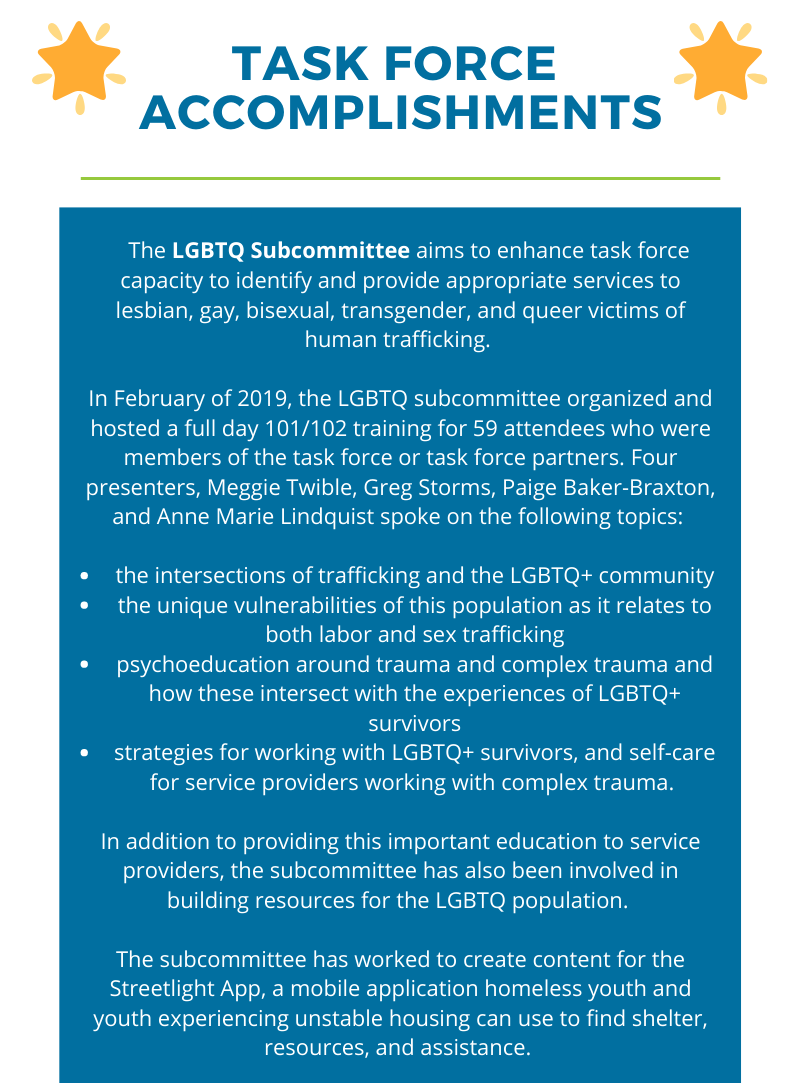
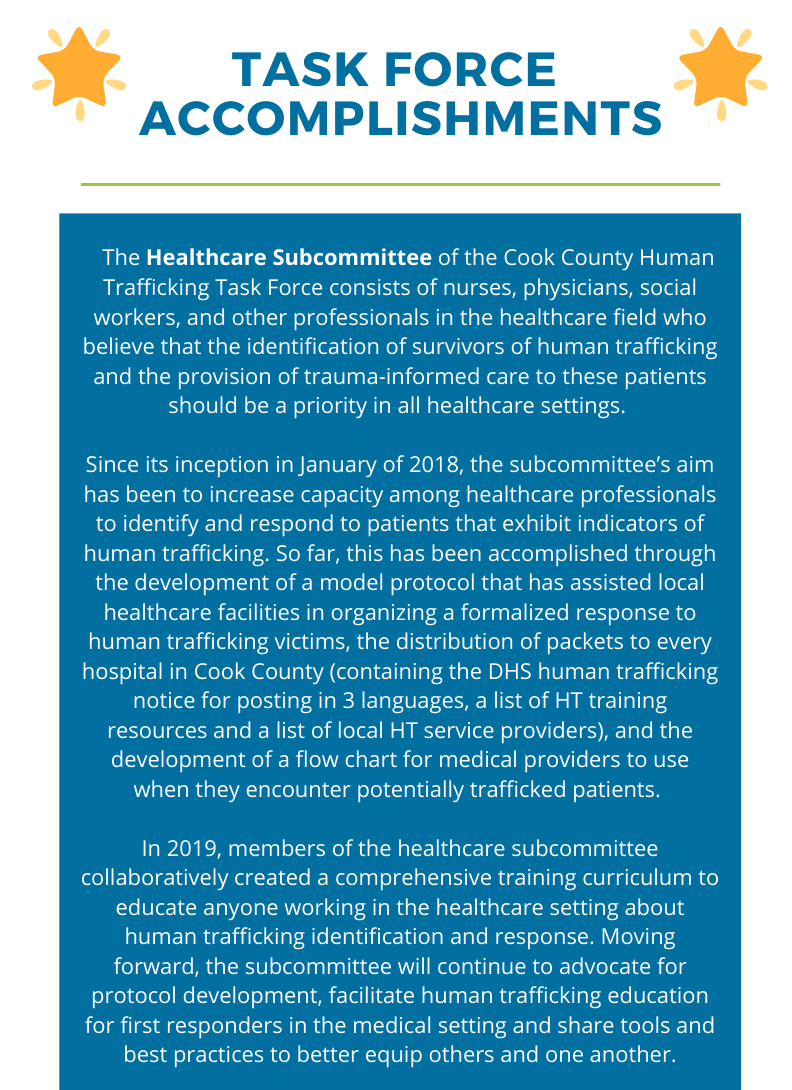
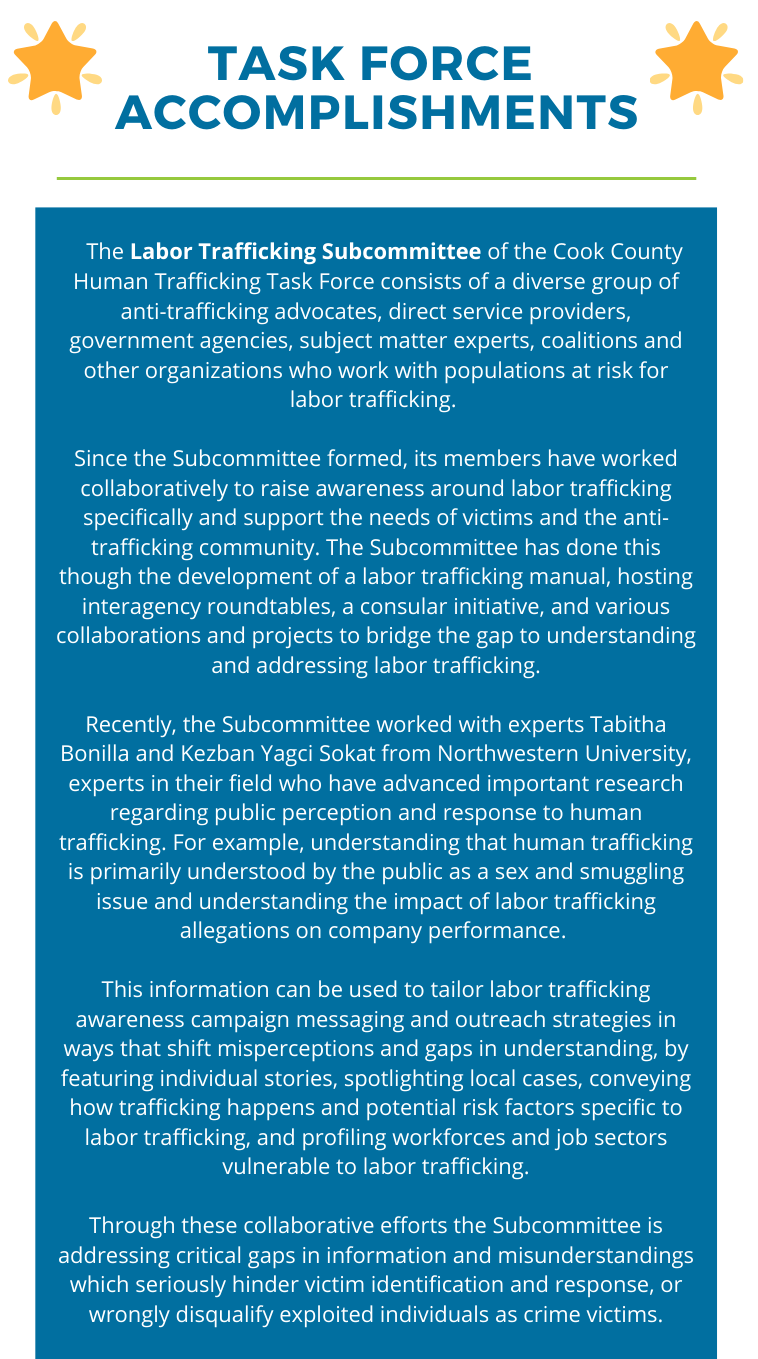
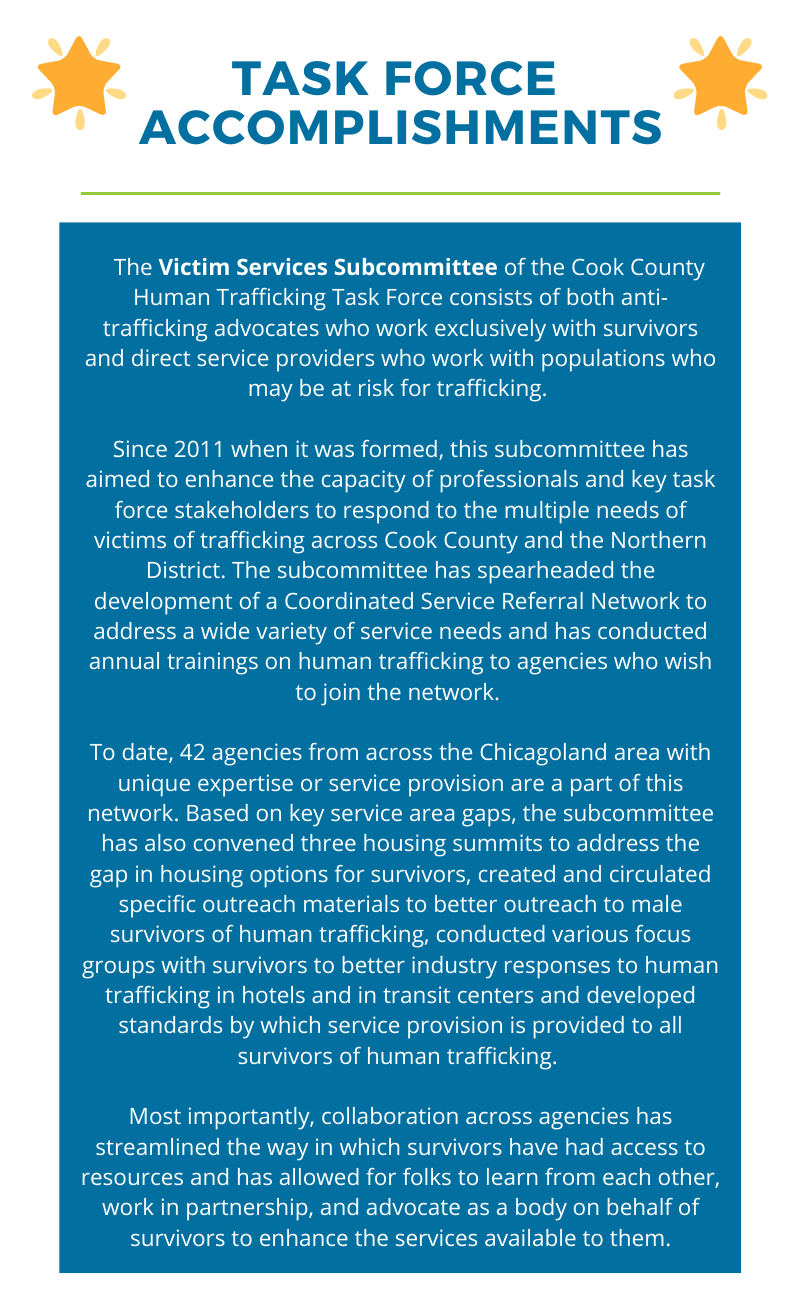
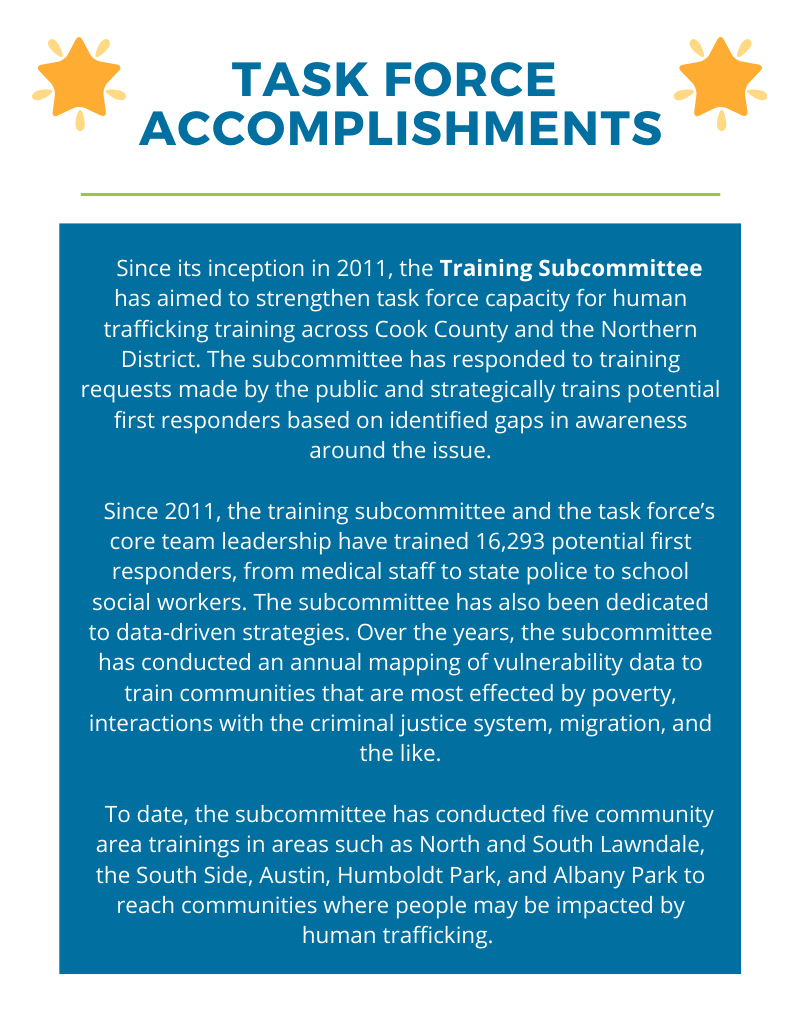
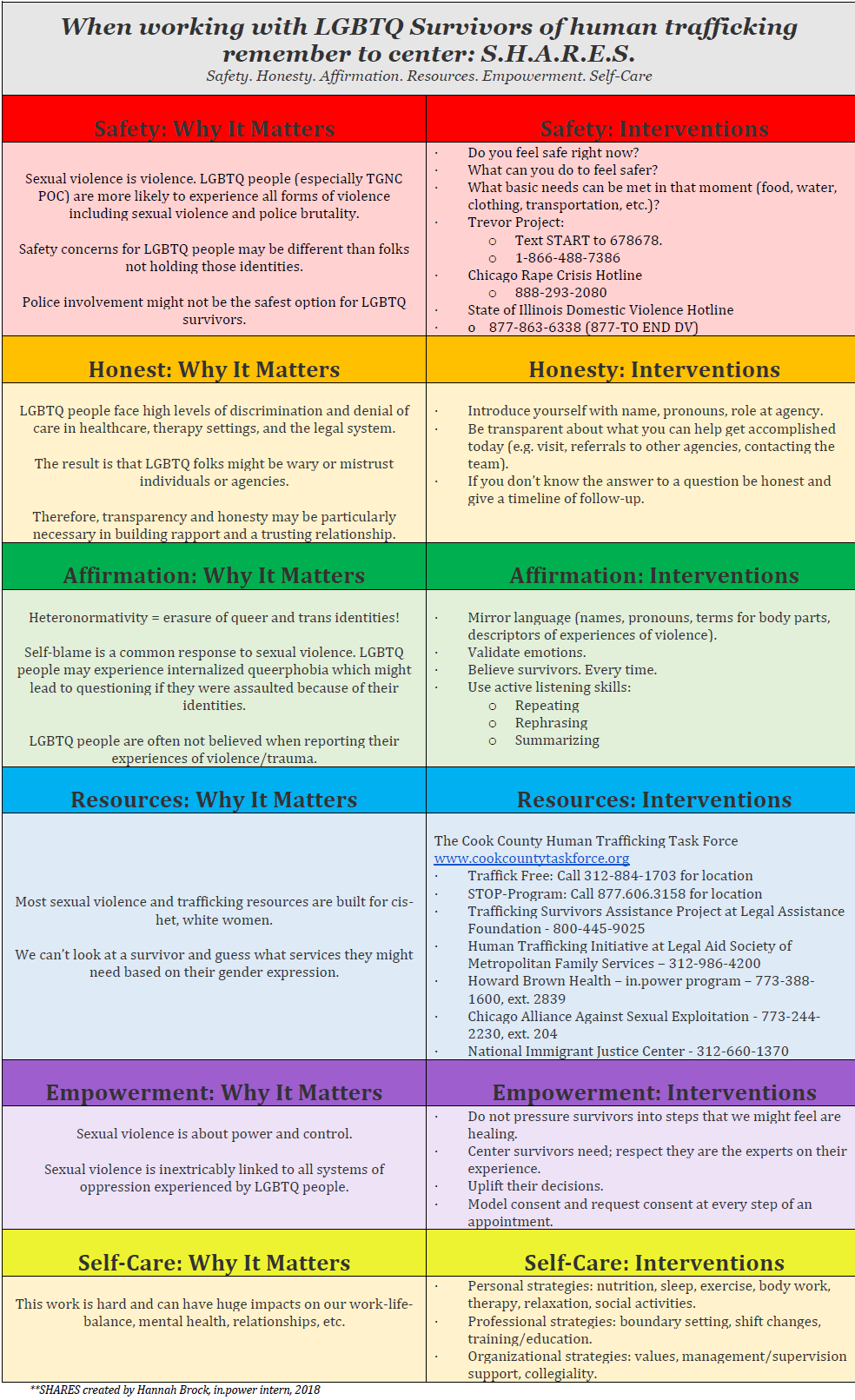
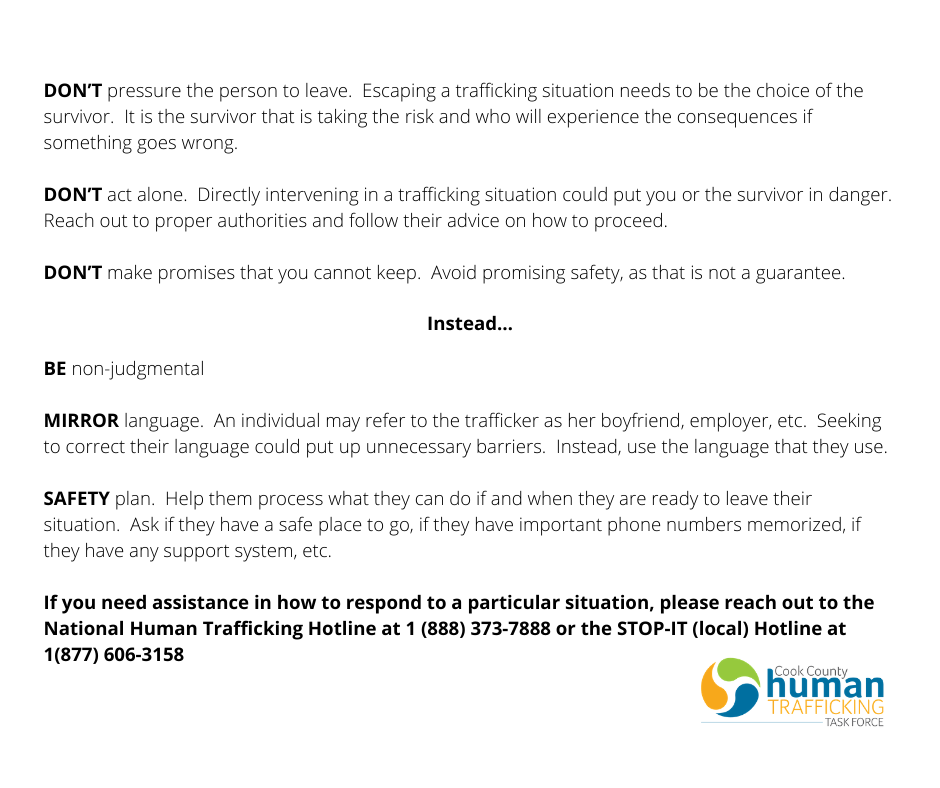
 RSS Feed
RSS Feed